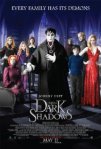 Director Luc Besson (The Fifth Element) offers us a glimpse into what it might be like to be in the witness protection program today…if we were part of a psychotic mobster family. Sadly, while the film starts out well, it soon tappers off into clichéd obscurity… a distant place it probably should have stayed.
Director Luc Besson (The Fifth Element) offers us a glimpse into what it might be like to be in the witness protection program today…if we were part of a psychotic mobster family. Sadly, while the film starts out well, it soon tappers off into clichéd obscurity… a distant place it probably should have stayed.
Premise: The Manzoni family relocates to France under the witness protection program, where fitting in soon becomes challenging as their old habits die hard. Result: A mildly entertaining film that rests almost entirely on the strength of its cast since not much else goes right.
Giovanni Manzoni (Robert De Niro), now aka “Fred Blake” is in witness protection. And so is his family including wife Maggie (Michelle Pfeiffer), daughter Belle (Dianna Agron) and son Warren (John D’Leo). “Why” is a mystery forever alluded to as “Fred” writes his memoires but unfortunately other than reference to a skin-deep betrayal of Don Liuchese (Stan Carp), audiences will be forever in the dark.
Uptight Robert Stansfield (Tommy Lee Jones) is his head of protection leading a team of supposedly dim-witted agents in Di Ciccio (Jimmy Palumbo) and Caputo (Domenick Lombardozzi).
This film starts out well enough, allowing observers to “get to know” the family and the way they are adapting to their “situation.” “Fred” is trying to figure out a way to bring meaning back into his life, when he is not pummeling random people into oblivion. Maggie is trying to nurture her family in between pyro-mania episodes. Belle, like her father has insane anger management issues and Warren is on the fast track to be a crime boss for himself one day, manipulating everything and everyone with impunity.
And for a while this is funny and interesting with the promise of thought-provoking character development. None of that happened. Instead, several key elements went horribly wrong. First, and foremost, the character development portion of the film never moved past “stereotypical thug” and it stopped being cute really fast. Here was an example of how getting to know someone made you like, and worse, understand them even less. Mid-way through the film they went from being agreeable to awful and by the end confounding caricatures.
Worse, the plot lines were either painfully predictable or completely inexplicable. On the one hand, half the events could be seen coming from oceans away despite how ridiculous they, in fact, were. In particular, two scenes: one involving a rogue newspaper that makes its way conveniently across the Atlantic and another involving an impromptu film viewing; both were obvious developments in the context of the film but also so preposterous as to illicit guffaws. The film is littered with these lazy moments.
But worse are the plot lines that defied explanation: the entire plot involving young Belle rests squarely in this world, forcing audiences to shake their heads ceaselessly. And the entire film alludes to some “story” that “Fred” is writing but by the end it is impossible to tell if we were given any answers, given a cliffhanger, or if the film was simply cut thirty minutes too short. Of course, experiencing this film would make no one want the answer to that last question to be in the affirmative since the film feels thirty minutes too long already.
The only real saving grace for this film is the actors themselves. Lesser actors would have driven this film into cinematic apocalypse. But because of the strength of the cast (somehow bamboozled into taking part in this film) the experience is significantly more enjoyable than it would otherwise have been. De Niro sells his role and although the character is not entirely likeable by the end, audiences are glad enough to see him in this type of amusing role (see Analyze This for a better time, however.)
Lee Jones once again does curmudgeon as well if not better than anyone in the business. His expressions of utter horror and disgust are priceless and his sparring with De Niro is worth its weight in gold.
Pfeiffer is great from moment one. She manages a full range of emotions and delights with every comment, facial experience, insult and tear she can muster.
D’Leo, as a relative unknown, is quite impressive in this film. He is believable, amusing and by the end, likely the most affable of all these characters.
For poor Agron, however, it is impossible to tell who ruined whom. Was it the trite, melodramatic expressions and pawings she musters at every turn that made her character so unwatchable? Or was it the fault of the writing, sketching an absurd picture of a character that makes no sense on paper or on screen. Let’s say a little and a lot of both.
Ultimately, The Family just doesn’t do enough or enough well to hold water. It indulges far too many stereotypes, flaunts weak and often vanishing storylines and leaves audiences wanting a completely different movie. While the performances are fun, they rely far too much on the stars in them and not enough on good film making.
Rating: 5 – A luke-warm Pinot Grigio



